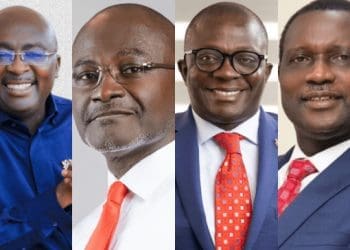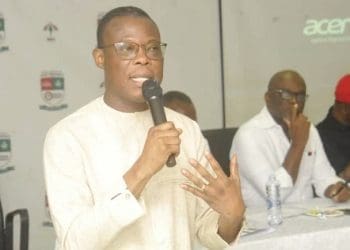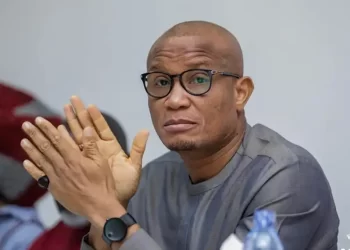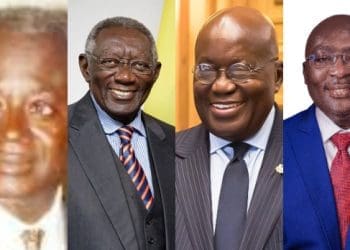The Special Representative of the Secretary-General for Libya and Head of the United Nations Support Mission in Libya (UNSMIL), Hanna Tetteh, has called for a fundamental review and restructuring of United Nations peace operations to make them more effective, adequately resourced, and adaptable to modern challenges.
Speaking at the Challenges Annual Forum 2025, Hanna Tetteh noted that the UN peacekeeping and peacebuilding efforts must evolve to remain relevant in an increasingly complex global landscape marked by geopolitical tensions, new technologies, and the growing influence of non-state actors.
The forum, held under the theme “Adapt and Advance: Renewing the Impact of Peace and Cooperation,” brought together policymakers, security experts, diplomats, and practitioners to examine the evolving landscape of global peace operations in an era of rising geopolitical tensions, polarization, and resource constraints affecting multilateral peacekeeping efforts.
She indicated that peacekeeping operations remain critical instruments of multilateral action but warned against the “mantra of doing more with less,” noting that inadequate funding and overly broad mandates often undermine mission effectiveness.
“Without the necessary resources, we cannot achieve the intended outcomes. Financial fatigue among member states must not lead to unrealistic mandates that stretch missions beyond their capacity,” she cautioned.
Referring to the 2024 UN Summit of the Future and the subsequent Pact for the Future, she noted that the Secretary-General’s ongoing review of peace operations is a timely opportunity for innovation and adaptation.
She urged member states to support reforms aimed at creating more agile, context-specific missions equipped to respond swiftly to emerging threats.
She also drew attention to Africa’s evolving security landscape, particularly in the Sahel, where violent extremist groups, transnational organized crime, and weak state institutions continue to threaten regional stability.
Hanna Tetteh cited Libya as an example of how porous borders and human trafficking networks fuel instability across the continent.
“The speed of regional integration among extremist groups is much faster than that among member states. We must catch up if we are to address these challenges effectively,” she said.
The UNSMIL head further underscored the dangers posed by disinformation and the weaponization of communication technologies, which she described as “increasingly sophisticated campaigns designed to undermine the credibility and legitimacy of UN missions.”
She called for enhanced strategic communication and counter-disinformation capacities, leveraging artificial intelligence and social media analytics to manage harmful narratives in real time.
On partnerships, Hanna Tetteh advocated for deeper collaboration between the UN, regional bodies such as the African Union, and local actors to strengthen preventive diplomacy and peacebuilding.
She urged frankness and early intervention in addressing potential crises, even when politically uncomfortable.
“As we talk about prevention, it is not the time to be overly politically correct. We must be frank and direct if we are to avoid crises before they escalate,” she asserted.
Hanna Tetteh also called for “political realism, innovative thinking, and renewed commitment” to ensure that UN peace operations remain viable and impactful tools for peace and security.
“We must sharpen and adapt the instruments in our toolbox so that all forms of UN peace operations continue to support global peacebuilding efforts and the creation of a more peaceful and prosperous world,” she said.
The Deputy Minister of Defence, Ernest Brogya Genfi, outlined four key areas the forum would explore; strengthening regional cooperation, integrating climate change into peace operations, leveraging technology for peace, and defining future priorities for global missions.
He underscored the importance of empowering regional organizations like the African Union to play a more proactive role in peace operations, noting Ghana’s support for innovative financing models and stronger UN–AU collaboration.
On climate change, he stressed that its effects now extend far beyond environmental concerns, fuelling displacement, competition over resources, and insecurity.
He lauded President John Dramani Mahama’s creation of a Ministry of Climate Change and Sustainable Energy, which he said provides strategic direction for implementing sustainable national responses.
The Deputy Minister also highlighted the transformative role of emerging technologies such as artificial intelligence, satellite mapping, and advanced data systems in strengthening peace operations.
“The challenge before us,” he said, “is how to innovate responsibly — harnessing these technologies for peace while defending against their misuse.”
He further called for renewed focus on prevention, inclusivity, and local ownership in peacebuilding processes, emphasizing that sustainable peace depends on empowering communities and institutions to sustain reconciliation and stability long after external missions conclude.
The Deputy Minister urged participants to move from reflection to action, and from adaptation to advancement, in shaping the next generation of peace operations.
“Ghana stands ready to play its part — supporting UN reforms to make peace operations more agile, inclusive, and effective, while sharing lessons from our decades of peacekeeping,”
“Let us challenge assumptions, push boundaries, and renew the impact of peace operations for generations to come.” he said.
The Acting Commandant of KAIPTC, Air Commodore David Anetey Akrong, also pointed out that the nature of contemporary conflicts requires adaptive and multidimensional responses that combine peacekeeping with peacebuilding, state reconstruction, and socio-economic recovery.
“The forum offers an opportunity to examine how conflicts and peacebuilding processes are evolving,”
“Through shared lessons and best practices, we can reconstruct peace operations to build resilience, prevent conflict, and sustain stability,” he added.
He commended the Government of Ghana for its continuous support to the KAIPTC, particularly in funding and facilitating international collaborations that enhance the country’s leadership role in peacekeeping and conflict resolution.













